
Mr. President, this is not democratic accountability!
The editorial of Bahar daily focuses on Iranian President Hassan Rouhani going to the parliament to answer MPs’ questions. Out of five questions asked from Rouhani, he was only able to persuade the MPs in one case, and the lawmakers were not convinced by the president’s explanations with regard to four other questions.
The editorial asserts: Hassan Rouhani said at the beginning of his speech in the parliament that in accordance with the Iranian supreme leader’s order, he was going to fulfill his legal obligations. Rouhani urged that being accountable is not only not the weakness of the government, but is tantamount to democracy because MPs’ questions are those of the people.
The editorial goes on to say: Acting on the supreme leader’s orders doesn’t mean that Rouhani should sacrifice truth and transparency to generalization, projection, and illogical explanations. As usual, instead of explaining the reason for the failure of the government in controlling smuggling of goods and foreign currency, a continuation of banking sanctions, no proper measures to reduce the unemployment rate, severe economic recession during past years, and strong devaluation of the national currency, Hassan Rouhani resorted to general reports. But the causes of current deteriorating conditions in the country were not mentioned.
The editorial continues: Rouhani tried to portray his government as the best ever since the revolution, but some foreign enemies and some domestic currents have prevented his government from achieving its goals. The president didn’t say why his economic team created the current conditions in the country. And as usual, he put the blame on the U.S. and even the past government.
The editorial concludes: Rouhani and his cabinet are responsible for what is happening in the country, and they must be accountable to people who have been damaged by their policies. For a government which claims to abide by democracy and citizens’ rights, such answers and reasonings are nothing but mocking democracy and its manifestations.
An editorial in Bahar daily on August 29, 2018
The critical moment for the 12th government!
The editorial of Ebtekaar daily focuses on Iranian President Hassan Rouhani’s answering MPs’ questions in the Iranian parliament.
The editorial states: during past weeks, two members of Rouhani’s cabinet and governor of the Central Bank were eliminated from his team. Now it is time for the president himself to face his critics and opponents in this battlefield. Hassan Rouhani has promised to set aside all considerations and to frankly analyze the current situation.
The editorial continues that observers consider this as a key opportunity for the government for an obvious reason. However, there are two possibilities: either the president would act with reservation and lose this opportunity, or he would defend the ideas for which people voted for him again more than a year ago. If the parliament has the right to question, the government too must reserve the right for itself to defend its own decisions and record, in the absence of any public media that is actively and efficiently aligned with it. People want to know the causes of the current deteriorating conditions from the president they voted for at ballot boxes. Hassan Rouhani doesn’t have much time before either preserving or losing people’s trust completely.
The editorial adds: the most important issue is to keep and restore people’s trust which will determine everything that will happen in the country. What is missing is an idea that can help in gaining people’s trust, while showing a way out of the problems. People know very well that all current issues are not because of the government’s programs and policies. A major part of the problems is either inherited from the past governments or is because of those who aren’t in the government but play a considerable role on it.
The editorial concludes: the parliament’s platform is a two-edged sword for Rouhani: it can result in losing his credibility or can be a golden opportunity in restoring the credibility that is sabotaged by his opponents.
An editorial in Ebtekaar on August 28, 2018
Questioning President Rouhani
This editorial addresses the upcoming questioning of the Iranian President in the parliament.
The editorialist begins by saying that questioning or impeaching authorities, including the executive branch, is one of the lawmakers’ rights. However, Iran’s parliament has not been successful in its monitoring duties. It should also be mentioned that President Rouhani, as well as his ministers, need to have a constructive interaction with parliament and be accountable to lawmakers about the country’s current issues.
The editorialist then points out that Iran’s only priority under today’s critical conditions is for all authorities to maintain solidarity among themselves. On one hand, the country is grappling with economic hurdles; on the other hand, it is under unprecedented pressure from abroad. Having said that, although it might not be an apt time for questioning Rouhani, he will be attending the parliament to answer lawmakers’ questions in a month.
Iran’s President is facing a dilemma now, continues the editorial. If Rouhani answers the questions routinely, he will be blamed by people. On the other hand, if Rouhani tells the truth, revealing what is going on behind the scenes, his words might wreak havoc in society. Iran’s President has no choice but solving this paradox with ingenuity, concludes the editorialist.
An editorial in Arman daily on August 26, 2018

Intelligence minister: we were in possession of cabinet member of the hostile government
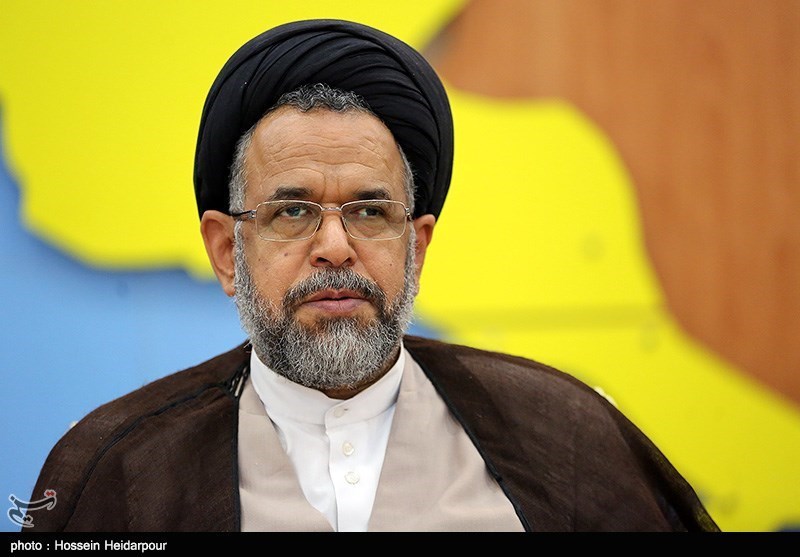
Mahmoud Alavi, Iranian intelligence minister, said a cabinet member of hostile government worked for Iranian intelligence ministry. Alavi didn’t mention to which country this individual belonged, but about two months ago, Israeli Jerusalem Post quoted Israeli intelligence service saying that Gonen Segev, former energy ministry of this country, had been arrested on a charge of espionage for Iran.
Alavi also claimed that Iranian security forces have arrested “tens of spies” working in Iran’s governmental bodies, as part of a crackdown on espionage and dual nationals.
Tasnim
Zibakalm taunts Rouhani for his talk in parliament
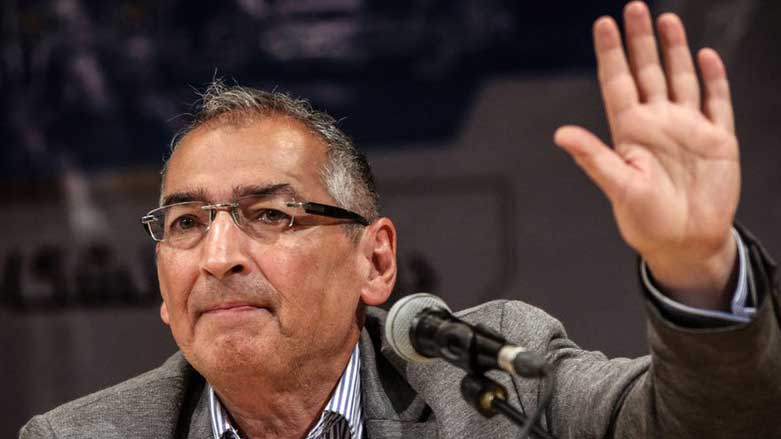
Reformist activist Sadegh Zibakalam wrote in his own Twitter with regard to Hassan Rouhani’s speech in Iranian parliament: “Even though there is water crisis in the country, Mr. President managed to take a bucket of cold, clean, pure water to the parliament, and with unprecedented courage, poured it over all hopes and expectations that had been created among people about this talk.”
Rouhani had gone to the parliament to answer MPs’ questions regarding deteriorating conditions of the economy in Iran. MPs were not satisfied with four of his five answers, and the majority of people found Rouhani’s talk as a great disappointment.
Rahyab news
Baghaee to be tried again
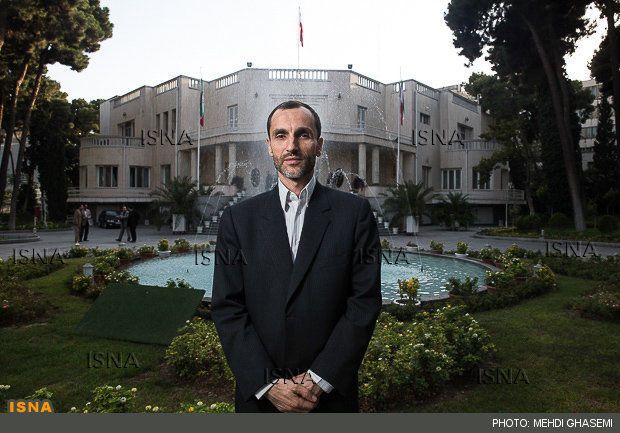
Hamdi Baghaee, executive deputy of former president Ahmadinejad in the 10th government, who has been imprisoned since March on the charge of embezzlement and illegal seizure of public property, will be put on trial again on Sunday, September 2, on a charge of insult.
According to Bahar Government channel, Baghaee is charged with calling Head of Justice Sadegh Larijani “unjust”.
ISNA
Political coalitions in Iraq
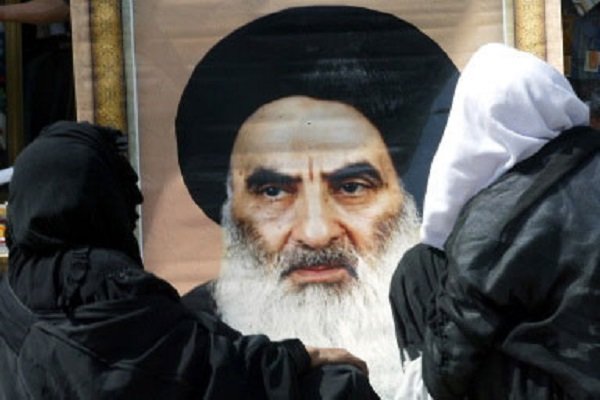
Political changes in Iran and talks and consultations for forming majority fraction and the government have expedited. This happened after a quadripartite coalition was formed among National Movement Wisdom, Sairon, Al Nasr, and Al Wataniya. In fact, the formation of this coalition accelerated political talks to form an Iraqi future government, because other political parties and currents too started to think of forming the majority fraction.
The formed coalition among National Movement Wisdom, Sa’eron, Nasr, and Wataniya has created the foundation of the majority fraction in the Iraqi parliament, which means that other political parties and currents must join this coalition if they want to be present in the majority fraction.
Since a number of other political figures, parties, and groups have announced their readiness to participate in the coalition among National Movement Wisdom, Sa’eron, Nasr, and Wataniya, this coalition will soon officially announce the formation of majority fraction in the parliament in order to form the government.
Mehr news
Turkey cuts import of oil and gas from Iran
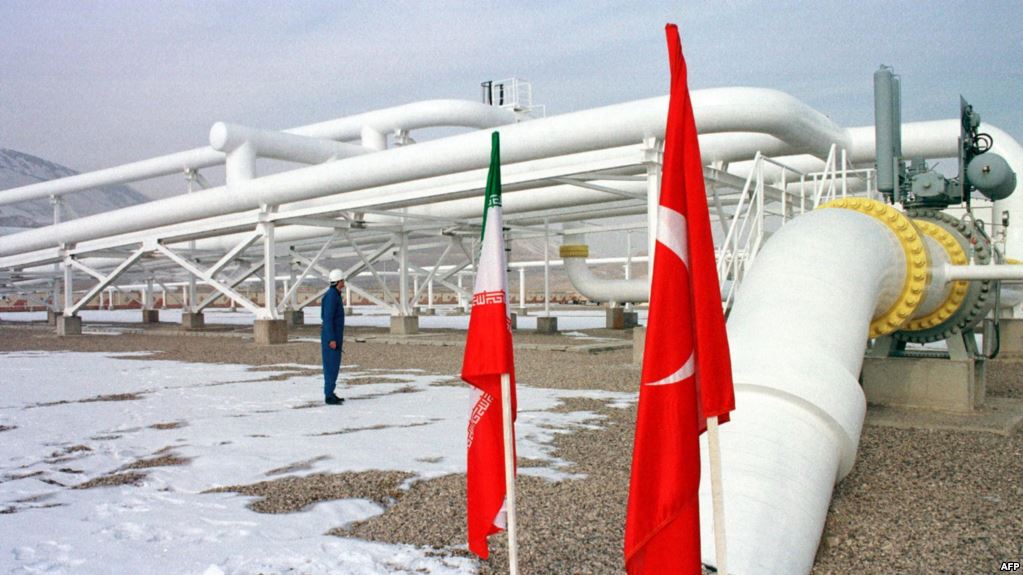
On the threshold of Turkish President Recep Tayyip Erdogan’s trip to Iran, Turkey’s Energy Market Regulatory Authority (EMRA) published its six-month report which shows a considerable drop in importing oil and gas from Iran. In the report published on Monday, EMRA says that in the first half of 2018, Turkey’s import of crude oil from Iran had a 27% drop reaching 4,296,000 tons (174,000 barrels per day).
Even though Turkey had announced it wouldn’t follow the U.S. sanctions, details of EMRA’s statistics show that Turkey’s oil purchase from Iran in June had a threefold drop compared to the previous month, reaching 70,000 barrels per day.
Radio Farda
Lawmaker: The Hague to vote for Iran
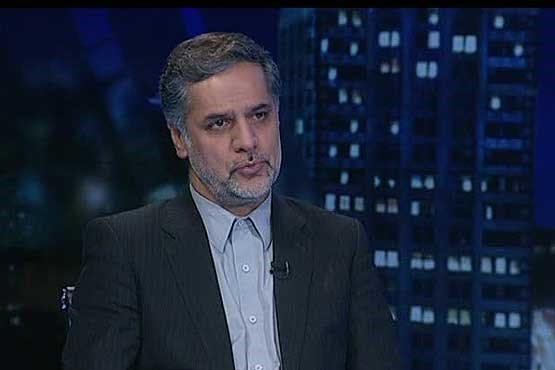
Hosseini Naqavi, the member of National Security and Foreign Policy Commission in the parliament, pointed out to the formation of International Court of Justice in the Hague to deal with Iranian lawsuit against the U.S. with regard to imposing new sanctions in contradiction with the nuclear deal. He said: “foreign ministry has chosen a new way by using the international capacity, and as we have a strong argument, we think that the Hague will vote for us.”
Naqavi Hosseini added that Iran’s argument is strong because an international agreement was signed, and both sides were committed to implementing it. But the other side not only didn’t fulfill its international obligations, it pulled out of the deal and reneged it.
Following the U.S. pulling out of the nuclear deal with Iran, Iran has filed a lawsuit against the U.S. in International Court of Justice, asking the court to vote for lifting the U.S. sanctions. Iran’s argument is based on the Amity Treaty which was signed between the two countries 63 years ago.
ISNA
Rouhani appoints Akrami in charge of the economy ministry
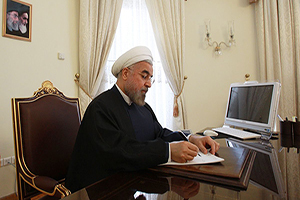
Following Iranian MPs giving a vote of no-confidence to the minister of economy Massoud Karbasian, Hassan Rouhani appointed Rahmatollah Akrami in charge of the ministry of economy.
IRIB news agency
Rouhani’s message to the king of Oman
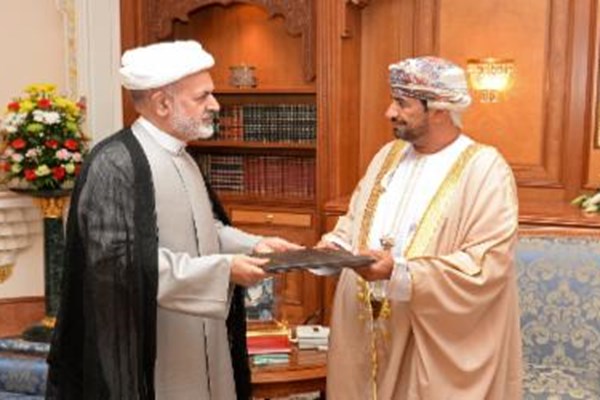
The Iranian ambassador in Oman Mohammad Reza Nour Shahroudi met with Khalid bin Hilal bin Saud al Busaidi, Oman’s court minister. In this meeting, Nouri Shahroudi gave Hassan Rouhani’s message addressed to Sultan Qaboos to Oman’s court minister.
In this meeting, friendly bilateral relations were also discussed.
Fars news agency
Iraqis are plundering Iranian border cities
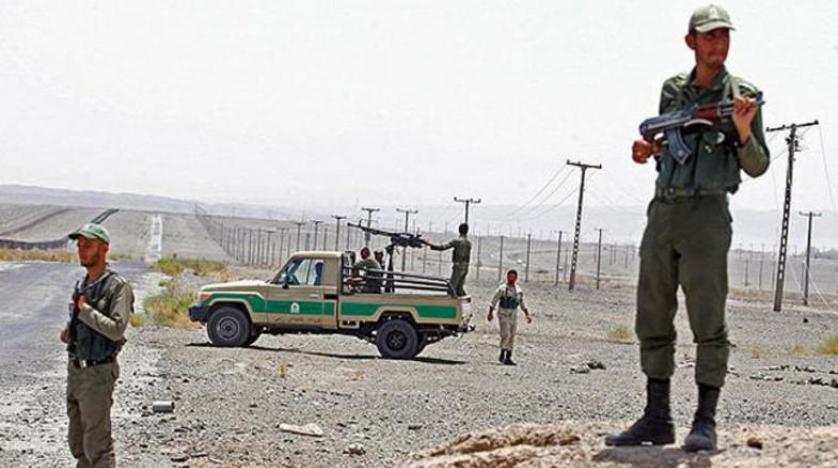
Some of the passengers who enter Iran from eastern and western borders aren’t tourists. In a few hours, they purchase all foods and essential goods in border cities and take them out of the country. Following the reduction in value of Iranian national currency, the number of passengers and tourists entering the country, particularly from the western borders, has been on the rise.
There is no problem with those tourist trips to pilgrimage and recreational cities which will create prosperity in the tourist industry. The problem is with those passengers who enter Iran with spending a little money and then buy different kinds of foods and essential goods that are offered with government subsidies.
ISNA
Iranian defense minister: we shut down 130 of our companies with economic activities
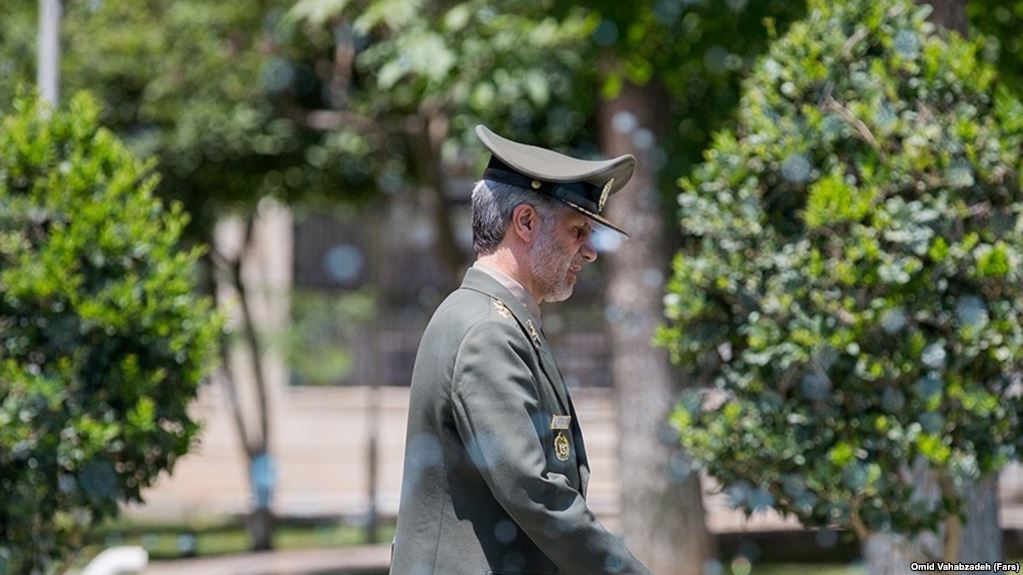
Amir Hatami, Iranian defense minister, said that his ministry has shut down more than 130 of its companies which had economic activities and has sold some of its companies as well. He also added that this ministry has sold Pars Wagon company and its shares in Iran Air Tour.
Iranian armed forces have created economic and financial institutes in different sectors, including IRGC’s economic institutions, Khatam al-Anbiya Headquarters, and Ansar Bank. Iranian defense ministry, in addition to military industry companies, is in possession of many companies including Iran Electronic Industry, Shams Omran Co., and Energy Resources Development.
Radio Farda
Iranian defense minister went to Syria
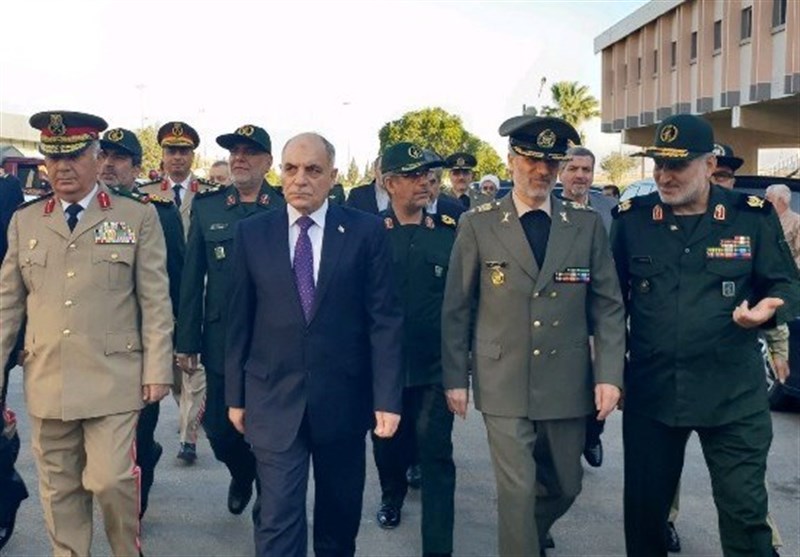
Amir Hatami, Iranian defense minister, heading a military high-ranking delegation, entered Syria to meet with senior defense and military officials of the country. Going over regional developments, fighting terrorism, boosting resistance axis, and discussing ways to develop military and defense cooperation between Tehran and Damascus would be among focal points of Amir Hatami’s trip to Syria.
Tasnim news agency
MPs remove minister of economy
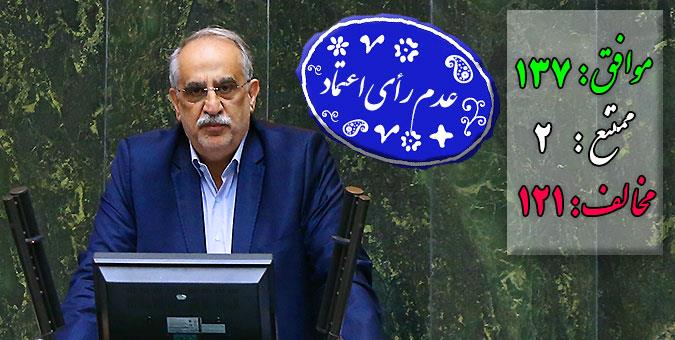
Iranian lawmakers removed Massoud Karbasian from the ministry of the economy with 137 votes. Impeachment session of Massoud Karbasian, minister of economy, was held on Sunday, and MPs gave a vote of no-confidence for the second time to one of the ministers of Rouhani’s government in less than a month.
Karbasian, in defense of his own performance in the economy ministry, pointed out to corruption and certain issues inside and outside Iran such as U.S. sanctions against Iran, saying that the existing problems in the field of the economy “are not under the control of the government”.
During the past year, severe disturbances in Iran’s currency market and also increase in inflation rate and spiking prices caused many protests in different cities of Iran.
Parliament news agency
IRGC-affiliated hackers target universities in 14 countries, says a cybersecurity company
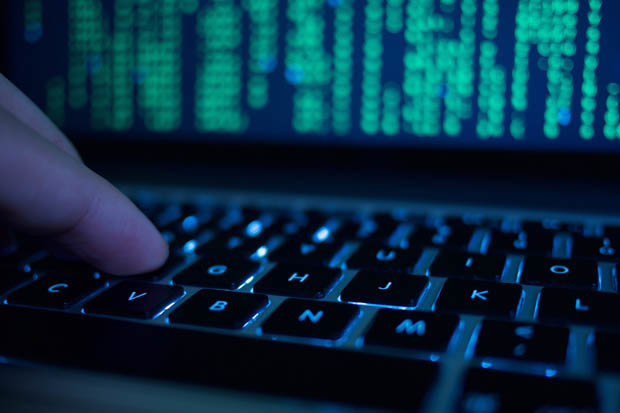
SecureWorks, a cybersecurity company in the U.S., announced that hackers affiliated with IRGC have targeted 76 universities in 14 countries including Japan, Australia, China, and Israel, aiming at stealing data. According to the Times of Britain, the universities of this country have been targeted as well. The names of these universities have not been disclosed.
According to SecureWorks, IRGC-affiliated hackers created 300 fake websites and fake login pages from May to August to steal usernames and passwords of the users.
Iranian cyber army was previously accused of hacking universities and institutions in western countries and regional ones.
Radio Zamaneh
Iran, Syria sign defense and technical cooperation agreements
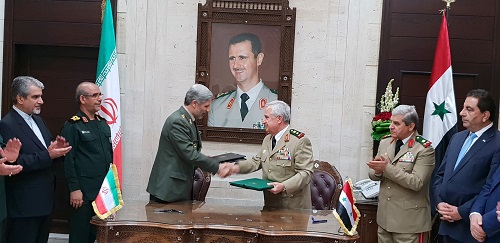
Agreement for defense and technical cooperation between defense ministries of Iran and Syria were signed on Sunday. Defense ministers of both countries met, and, after long negotiations, they signed a defense cooperation agreement between the two countries.
Iranian Defense Minister Amir Hatami pointed out to Tehran-Damascus strategic relations, urging that Syria is moving beyond the critical stage and entering the construction period; therefore, these agreements will define the grounds for presence, participation, and cooperation between Tehran and Damascus.
Young Journalists Club
President’s advisor reacts to the claim of the secularization of seminaries
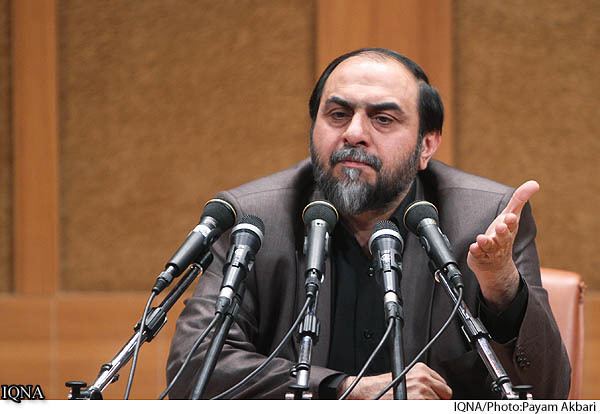
Following Hassan Rahimpour Azghadi’s controversial claims as to secularization of religious seminaries in Iran, Hessamoldin Ashena, Iranian president’s advisor, said the alleged secularism of seminaries is not because of not working enough, but due to overactivity of establishment in these places. Ashena added, ‘if innovation, new ideas, and freedom of speech were not suppressed, then it wouldn’t be necessary to send an engineer [Rahimpour Azghadi] to the seminary to teach grand ayatollahs on how to do ijtihad.’
Etemad
Tehran and Moscow negotiate for constructing a new nuclear power plant in Iran
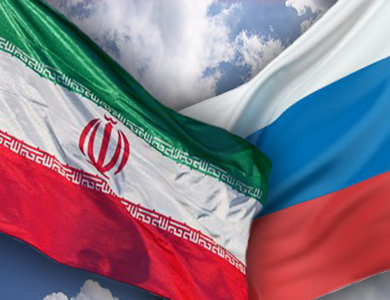
Iranian Energy Minister Reza Ardakanian announced Iran’s negotiation with Russia for constructing a new nuclear power plant in Iran. According to Ardakanian, negotiations for constructing a nuclear power plant with 3000-megawatt capacity are underway to increase the current capacity of producing power from 1000 to 4000 megawatts.
In 2014, Iran and Russia signed an agreement, so Russia can build 8 other nuclear reactors for Iran. Some energy and environment experts do not consider constructing nuclear power plants in Iran as economic, given the considerable amount of renewable and fossil energies that are accessible in Iran.
Radio Zamaneh
